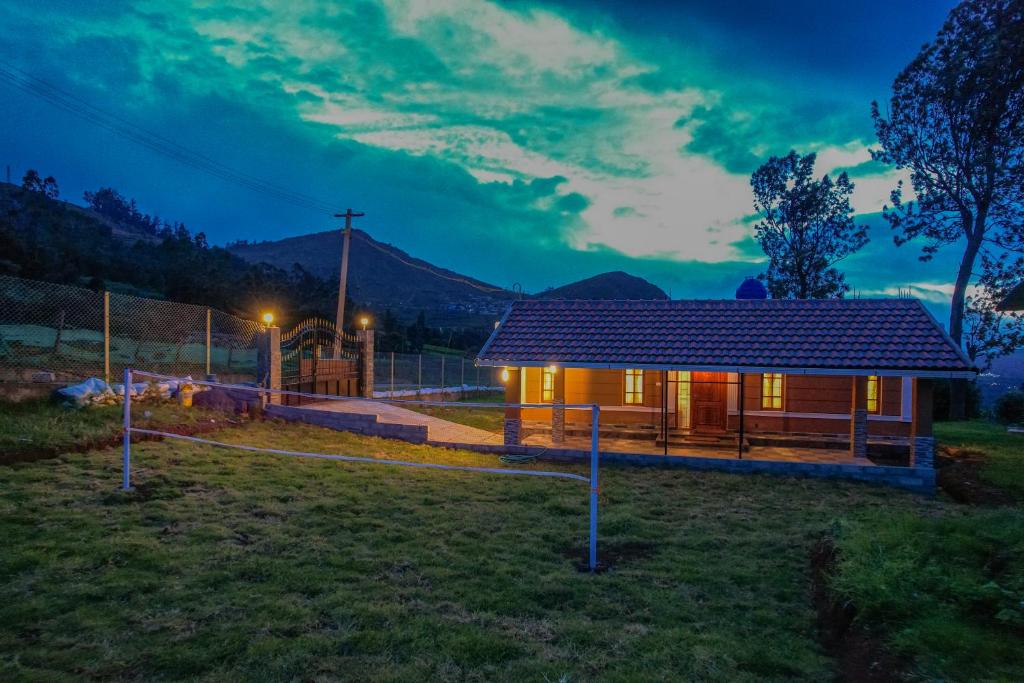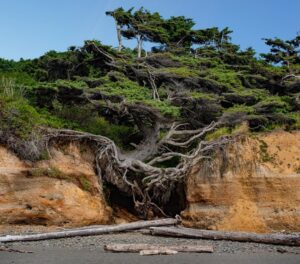 Pin
Pin Photo by HCU students
The Telangana government’s decision to clear 400 acre Kancha Gachibowli land has sparked a heated debate, with students from the University of Hyderabad (UoH) leading protests against the move. They argue that the area has ecological significance and should be protected. On the other hand, government officials maintain that the land was never recorded as forest in revenue or forest department records. This contradiction has fueled tensions between environmental activists, students, and authorities.
For years, Kancha Gachibowli has been considered a green zone, providing habitat for various flora and fauna. However, as Hyderabad expands rapidly, pressure on land resources has increased. The government’s stance is that since there is no official designation of the land as forest, it can be used for developmental projects. Protesters, however, claim that the land has historically been treated as a natural ecosystem, and clearing it would harm biodiversity.
The situation highlights the larger issue of urban expansion versus environmental conservation. With growing concerns over deforestation, climate change, and unregulated land use, cases like this one raise critical questions about governance, land ownership, and sustainable development. The clash between legal records and ground reality is at the heart of this debate.
Table of Contents
Government's Justification and Legal Standing
The Telangana government asserts that the 400-acre Kancha Gachibowli land is state-owned and not classified as forest land in official records. According to the Chief Minister’s Office, revenue documents confirm the land’s status as government property, designated for industrial use. In 2003, the land was allocated to a private sports management company for development purposes, indicating its intended use for non-forest activities.
Officials emphasize that the land has never been officially recognized as forest, and its development aligns with the state’s objectives to enhance infrastructure and urban living spaces. They also contend that the planned projects will not encroach upon the University of Hyderabad’s property or disrupt existing natural features such as lakes and rock formations.
However, this stance has been met with skepticism from environmentalists and students who argue that the area’s ecological value warrants preservation, regardless of its official classification. The discrepancy between legal documentation and environmental significance has become a focal point in the ongoing debate over the land’s future.
Student and Environmentalist Opposition
The Telangana government’s move to clear 400 acres of land in Kancha Gachibowli has ignited significant protests from students at the University of Hyderabad (UoH) and environmental activists. They argue that this area is ecologically vital, hosting approximately 734 plant species and 220 bird species, including vulnerable wildlife such as the Indian Star Tortoise. The land also features unique geological formations like the Mushroom Rock and contains two lakes—Peacock Lake and Buffalo Lake—that sustain local biodiversity.
In response to the land clearing, UoH students initiated an indefinite class boycott, demanding an immediate halt to deforestation activities. The situation escalated when police resorted to lathi charges to disperse protesting students and faculty members. Environmentalists have also raised concerns about the potential ecological impact, emphasizing that the loss of this green space could lead to a temperature rise of 1–4°C in the area.
The protests have garnered political attention, with opposition parties criticizing the government’s actions. BJP MPs from Telangana met with Union Education Minister Dharmendra Pradhan, seeking intervention to protect the ecologically sensitive land. The collective outcry underscores the broader debate between development and environmental conservation, highlighting the need for sustainable urban planning that respects ecological balance.
Legal Challenges and Court Interventions
The controversy surrounding the 400-acre Kancha Gachibowli land has escalated to legal battles, with multiple Public Interest Litigations (PILs) filed against the Telangana government’s actions. Petitioners argue that the land qualifies as a ‘deemed forest’ and should be protected under environmental laws. They contend that the government’s move to clear the land for development violates legal protections for such areas.
In response to these petitions, the Telangana High Court has scheduled urgent hearings to address the grievances. The court’s involvement underscores the complexity of the issue, balancing developmental objectives with environmental conservation and legal mandates. The outcomes of these legal proceedings could set significant precedents for how ‘deemed forests’ are treated in the context of urban development.
The legal discourse also brings to light the necessity for clear land classification and transparent governance. Discrepancies between official records and environmental realities have fueled the conflict, highlighting the importance of meticulous documentation and adherence to legal frameworks in land development projects.
Environmental Impact and Ecological Concerns
The Telangana government’s decision to clear 400 acres of land in Kancha Gachibowli has raised significant environmental concerns among ecologists and local communities. The area is recognized for its rich biodiversity, hosting approximately 455 species of flora and fauna, including unique rock formations and vital green cover that contribute to the region’s ecological balance.
Environmentalists warn that deforestation in this area could lead to a temperature increase of 1–4°C, exacerbating the urban heat island effect and impacting local climate conditions. The removal of green spaces not only threatens wildlife habitats but also affects air quality and water resources, as forests play a crucial role in carbon sequestration and maintaining hydrological cycles.
Despite assurances from the Telangana Industrial Infrastructure Corporation (TGIIC) that development plans will preserve existing rock formations and water bodies, activists remain skeptical. They emphasize the importance of conducting comprehensive environmental impact assessments before proceeding with large-scale land clearance to ensure sustainable development that balances economic growth with ecological preservation.
Political Reactions and Public Sentiment
The Telangana government’s decision to clear 400 acres in Kancha Gachibowli has ignited a spectrum of political reactions and public sentiments. Opposition parties, notably the Bharatiya Janata Party (BJP), have criticized the move, aligning with student protests and environmental activists. BJP legislators attempted to visit the disputed site but were reportedly prevented by police, escalating political tensions.
Public sentiment appears divided. While environmentalists and students emphasize the ecological importance of the land, some residents support development initiatives, citing economic growth and job creation. Social media platforms reflect this divide, with hashtags both supporting and opposing the land clearance trending regionally.
The situation underscores the complex interplay between environmental conservation, educational interests, and economic development. As legal proceedings continue and public discourse evolves, the outcome of this controversy may set precedents for future land use decisions in rapidly urbanizing regions.
Judicial Intervention and Current Status
In response to the escalating protests and legal challenges, the Telangana High Court has intervened by issuing an interim stay on all development activities over the disputed 400-acre Kancha Gachibowli land. This decision came after petitions from students and environmental organizations raised concerns about the ecological impact of the land clearance.
The court’s order mandates the Telangana Industrial Infrastructure Corporation (TGIIC) to halt all work until the next hearing. The court aims to determine whether the land should be granted “deemed forest” status, as argued by the petitioners.
This judicial intervention underscores the significance of the issues at hand, balancing developmental ambitions with environmental preservation. The court’s forthcoming decisions are anticipated to have a substantial impact on the future of the Kancha Gachibowli land and may set precedents for similar cases involving land use and environmental conservation.
Public Outcry and Civil Society's Response
The Telangana government’s decision to clear 400 acres of land in Kancha Gachibowli has ignited widespread public outcry and mobilized civil society groups. Environmentalists, academics, and concerned citizens have united to protest the deforestation, emphasizing the area’s ecological significance. An online petition by the Save City Forests group has garnered over 142,000 signatures, reflecting the depth of public opposition to the proposed development.
Civil society organizations argue that transforming the forest into an IT hub could lead to severe ecological and climatic consequences. They stress the importance of preserving urban green spaces for maintaining biodiversity, regulating temperatures, and providing clean air. Academics from the University of Hyderabad have also voiced concerns, highlighting the potential loss of a natural laboratory for research and education.
The collective action of these groups underscores a growing awareness and demand for sustainable development practices. The situation in Kancha Gachibowli serves as a poignant example of the tensions between urban expansion and environmental conservation, prompting calls for more transparent and ecologically sensitive policymaking.
Balancing Development and Environmental Preservation
The controversy surrounding the 400-acre Kancha Gachibowli land underscores the complex interplay between urban development and environmental conservation. While the Telangana government aims to utilize this land for infrastructural growth, the significant ecological value of the area cannot be overlooked. The presence of diverse flora and fauna, unique geological formations, and vital water bodies highlights the need for a balanced approach that accommodates both developmental aspirations and ecological preservation.
The involvement of the judiciary, civil society, and political entities reflects the multifaceted nature of this issue. As legal proceedings continue and public discourse evolves, it is imperative for all stakeholders to engage in transparent dialogue and collaborative decision-making. Prioritizing comprehensive environmental impact assessments and exploring sustainable development models can pave the way for solutions that honor both the need for progress and the imperative to protect our natural heritage.
The Kancha Gachibowli case serves as a critical reminder of the challenges inherent in balancing growth with sustainability. It emphasizes the importance of proactive environmental stewardship in the face of rapid urbanization, ensuring that development today does not come at the expense of the ecological integrity needed for future generations.
FAQs
The controversy centers on the Telangana government’s decision to clear and auction 400 acres of land in Kancha Gachibowli, adjacent to the University of Hyderabad (UoH), for the development of IT parks. Students, faculty, and environmentalists oppose this move, citing the area’s rich biodiversity and ecological importance. The government maintains that the land is state-owned and designated for industrial use, while protesters argue it serves as a vital green space and habitat for various species.
Protesters highlight that the 400-acre area is home to over 455 species of flora and fauna, including unique rock formations and water bodies. They contend that clearing this land for development would lead to significant environmental degradation, loss of biodiversity, and adverse climatic effects, such as increased temperatures in the region.
The Telangana government asserts that the land in question is not classified as forest land in official records and is designated as revenue land intended for industrial development. Officials emphasize that the land has never been officially recognized as forest, and its development aligns with the state’s objectives to enhance infrastructure and urban living spaces.
Yes, the Telangana High Court has intervened by issuing an interim stay on all development activities on the disputed 400-acre Kancha Gachibowli land. This decision came after petitions from students and environmental organizations raised concerns about the ecological impact of the land clearance. The court’s order mandates the Telangana Industrial Infrastructure Corporation (TGIIC) to halt all work until the next hearing.
Environmentalists warn that deforestation in this area could lead to a temperature increase of 1–4°C, exacerbating the urban heat island effect and impacting local climate conditions. The removal of green spaces threatens wildlife habitats, affects air quality, and disrupts water resources, as forests play a crucial role in carbon sequestration and maintaining hydrological cycles.
































